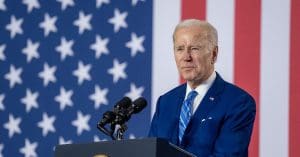The economic crisis caused by the coronavirus pandemic poses a triple challenge for tax policy in the United States. Lawmakers are tasked with crafting a policy response that will accelerate the economic recovery, reduce the mounting deficit, and protect the most vulnerable.
To assist lawmakers in navigating the challenge, and to help the American public understand the tax changes being proposed, the Tax Foundation’s Center for Federal Tax Policy modeled how 70 potential changes to the tax code would affect the U.S. economy, distribution of the tax burden, and federal revenue.
In tax policy there is an ever-present trade-off among how much revenue a tax will raise, who bears the burden of a tax, and what impact a tax will have on economic growth. Armed with the information in our new book, Options for Reforming America’s Tax Code 2.0, policymakers can debate the relative merits and trade-offs of each option to improve the tax code in a post-pandemic world.

Analyzing the Kansas Senate’s Proposed Tax Changes
As Kansas legislators consider additional tax policy changes this legislative session, they should prioritize economic growth and a structurally sound tax code.
7 min read
Biden’s FY 2024 Budget Would Result in More Than $4.5 Trillion in Gross Tax Increases
President Biden’s new budget proposal outlines several major tax increases targeted at businesses and high-income individuals that would bring U.S. income tax rates far out of step with international norms.
7 min read
Dear President von der Leyen: President Biden Can’t Fix European Competitiveness
Focusing on the “threat” to European industry caused by the Inflation Reduction Act rather than internal tax system flaws puts the EU at risk of slower economic growth and possibly losing some of its important industrial base. It is also contrary to the EU’s geopolitical goals.
4 min read
EU Taxation: Prioritizing Geopolitics over Revenue
If the EU wants to strategically compete with economic powers like the United States or China, it needs principled, pro-growth tax policy that prioritizes efficient ways to raise revenue over geopolitical ambitions.
6 min read
Careful What You Wish For: CHIPS Subsidies Require “Excess Profits” Sharing
Instead of such a complex and inefficient system, policymakers should move to full expensing as part of the effort to build.
3 min read
North Dakota’s Path to a Flat Individual Income Tax
Crafting a hybrid bill for a low, flat rate on a broad base—with well-designed revenue triggers to responsibly reduce rates in the future—could be an ideal way forward for the North Dakota Senate.
7 min read
Taxing Distributed Profits Makes Business Taxation Simple and Efficient
Adopting a distributed profits tax would greatly simplify U.S. business taxes, reduce marginal tax rates on investment, and renew our country’s commitment to pro-growth tax policy.
6 min read
West Virginia Lawmakers Reach Deal on Tax Relief
In a day and age when businesses and individuals alike are increasingly mobile, West Virginians can be relieved that their state is getting off the sideline and into the action.
4 min read
Cities Want to Tax Streaming Video Services, but They’re Not Sure Why
A growing number of cities, in red states like Arkansas and Texas, blue states like California and New Jersey, and purple states like Georgia and Nevada, have pursued streaming taxes in recent years.
7 min read
The EU’s Windfall Profits Tax: How “Tax Fairness” Continues to Get in the Way of Energy Security
When it comes to providing economic relief to those in need, wartime energy security, and principled tax policy, the EU can do all three. But a windfall profits tax is not the policy to achieve these goals.
8 min read